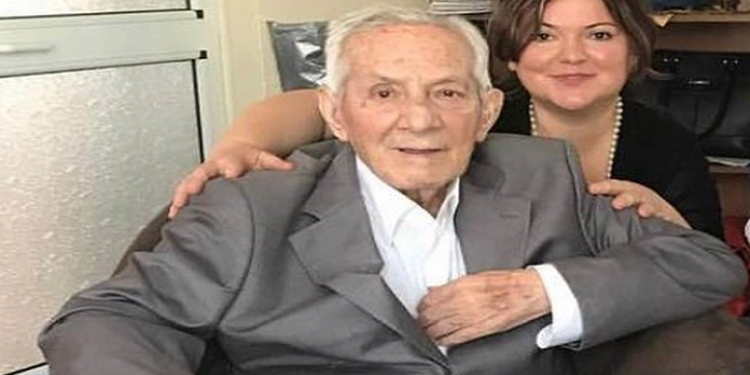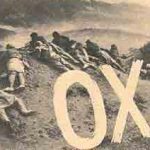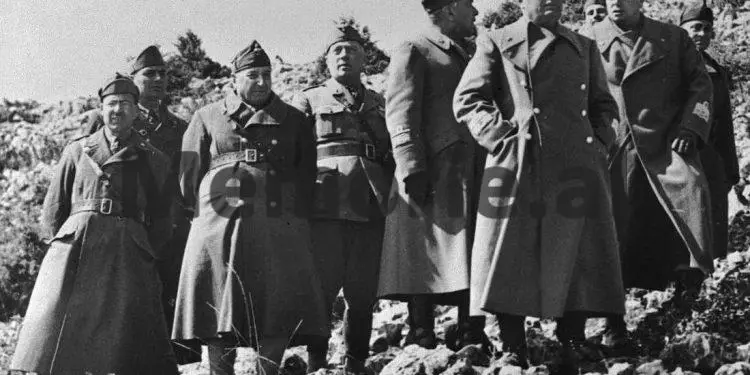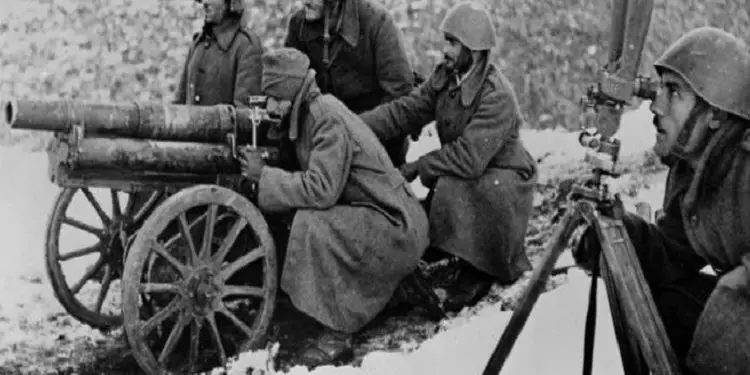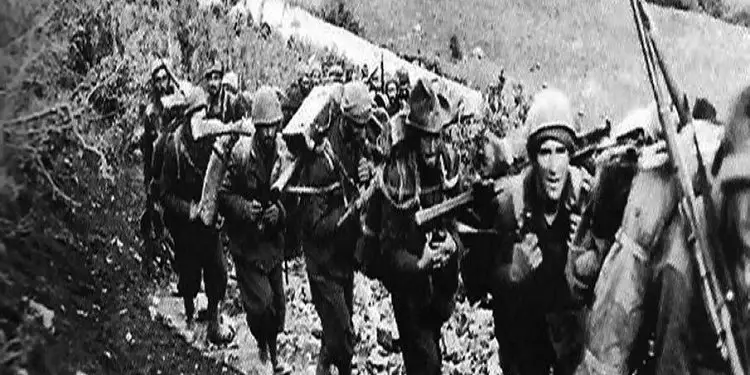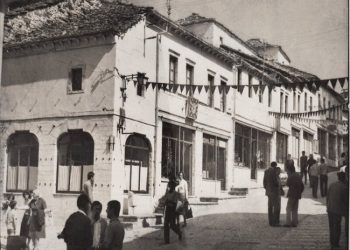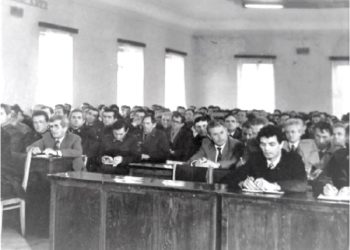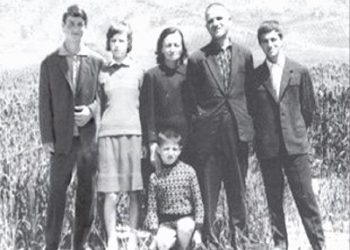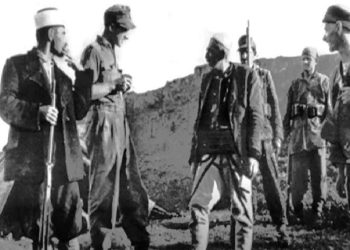By Prof. Dr. Paskal Haxhi
Memorie.al / Various Albanian politicians, both in Parliament and in the periodical press, continue to discuss that Greece has not lifted the state of war with Albania. This is a political and legal speculation, which does not correspond to the historical, political and legal truth. Here is how the truth stands based on official acts.
Historical truth
Italy on April 7, 1939, declared war on Albania and finally occupied it militarily. The resistance of the Albanian army to the Italian military machine was impossible. The King of Albania, Ahmed Zogu and his legitimate government, fled through Greece and settled in the allied countries of the coalition, as did the King of Greece with his government, after it was occupied by the German and Italian occupiers. Fascist Italy established its occupation regime in Albania, declaring Albania as part of its Kingdom with King Victor Emmanuel.
At the same time, it created quisling state organizations led by the viceroy of the Italian Kingdom, Jacomoni. Under these conditions, the war was between the Italo-German axis of Greece and not with occupied Albania, where the Albanian state had no legitimate authority to make sovereign decisions to declare war. The legitimate government of Albania left Albania and settled in the allied countries that were at war with Italy and Germany. As it turns out, the state of war with Greece was a historical paradox that was exploited by Greek chauvinism for other political purposes.
On October 28, 1940, Italy declared war on Greece and attacked it militarily. The Greek government, headed by Metaxas, did not accept the ultimatum and put up a resistance, where the Greek people and army made the Italian soldiers not only not drink coffee in Athens within 24 hours, as they claimed, but also suffered a heavy defeat and would have been thrown into the sea if the German army had not helped them, which attacked Greece from the north and occupied it militarily, establishing the Italian-German occupation regime in Greece as well.
The legal truth
On November 10, 1940, Greece promulgated law 2 663 “On hostile legal actions and the conservative seizure of enemy assets”. Meanwhile, on the same date of November 10, 1940, it promulgated the royal decree that defined enemy states, according to the meaning of the aforementioned law: “Italy with its possessions, imperial territories, its colonies and Albania”. The inclusion of Albania in this royal decree as an independent state was unjust, since Albania was a state occupied by Italy, where the rules of occupation with the respective quisling government were in effect, just like in Greece.
In law 2636 of 1940, it was determined that: a) the right to designate enemy states by Royal Decree and upon proposal of the Prime Minister, the Ministry of Foreign Affairs and the Economy; b) commercial relations and in general any relationship between persons residing in Greece, regardless of their nationality and that of the enemy, as well as any action of the administration or unilateral action of persons residing in Greece, were prohibited; c) the assets of the enemies were seized by the state and their disposal by the enemies was prohibited.
After World War II, in 1949, law no. 1 138, which amended the previous law and determined that the solution to the implementation of the provisions of this law can be made by joint decision of the Prime Minister, the Minister of Foreign Affairs, Finance and Justice, while the previous law on these issues required a Royal Decree. So, according to the legislation in force that we mentioned, two problems could be regulated: a) the removal of the sequestration of the assets of Albanian citizens and; b) the removal of the state of war.
Precisely in accordance with the above provisions, on 28 August 1987, the Greek Council of Ministers, headed by Andreas Papandreou, decided to lift the state of war with Albania. It is worth noting that the Foreign Minister at that time was Mr. Karolos Papoulias, today President of the Republic of Greece, who directly contributed to the lifting of the state of war.
Before the decision to lift the state of war with Albania was made, it was widely discussed by prominent Greek lawyers and constitutionalists, headed by Professor George Kasimatis, who at that time was also the legal advisor to the “Papandreou” government. The discussion was aimed at determining which was the competent body, according to the Greek Constitution, to decide on the lifting of the law of war, where it was concluded that legally, the lifting of the state of war is done by a decision of the Greek Council of Ministers.
In his book “Regime according to the Constitution”, Prof. Kasimati, on pages 241-242, addressing this problem on the basis of the Greek Constitution, defines the powers, in the interpretation of its article 36. He states that; “the lifting of the state of war against Albania, approved by a pre-war Royal Decree, could have been done by decision of the Council of Ministers, and in this way it was done correctly. This action cannot be considered contra legem, but as an interpretation based on the historical changes in the meaning of the provisions of the Constitution, after the transition from a royal regime to a parliamentary republic”.
In this way, the lifting of the state of war was publicly announced on 28 August 1987, through a communiqué from the Greek government, which stated: “The government declares that the characterization of Albania as an enemy state has ceased to exist. The competent Greek authorities are now carefully studying the most fruitful way to legally regulate the pending issues. The termination of the previous state of war will contribute to the further strengthening of relations between the two countries and the expansion of cooperation between them”.
At the same time, the Foreign Minister of the government, Papoulias, who lifted the state of war, declared in the Greek Parliament on 3 December 1987 that: “The decision of the Greek government to advance the lifting of the Law of War with Albania constitutes a high political act. It was made with a high sense of political responsibility and fully responds to the peace-loving feelings of the overwhelming majority of the Greek people”. The lifting of the state of war with Albania was received by extremist nationalist circles as a national betrayal by the Papandreou government.
Even the New Democracy Party led by Mr. Micotaqi, not only did not annul the government’s decision when it came to power, but with its actions it took for granted the decision of August 28, 1987. Prime Minister Micotaqi only further expanded relations with Albania, and as Prime Minister of the Greek government, he even made the first friendly visit after the lifting of the state of war with Albania.
Political truth
The existence of the state of war with Greece and its continuation until 1987 was an anti-historical, anti-political and anachronistic situation, maintained by the influence of Greek chauvinist circles. The Albanian people continued their resistance against Italy and Germany with a long and armed war and liberated their country, of course with the help of the allies. It was precisely this war of the Albanian people that ranked Albania among the allied states that were against the fascist axis.
It should also be noted that with law no. 61. of May 17, 1945 of the Anti-Fascist National Liberation Council, which at that time was the highest authority in Albania, all legal norms issued during the Italian and German occupation were repealed and declared null and void. Their declaration as null and void meant that their annulment had absolute force and had effects ex tunc, i.e. not from the entry into force of the above-mentioned law, but from the day after April 7, 1939.
This conclusion from an international legal point of view is also reaffirmed in Article 31 of the Peace Treaty with Italy, signed as a result of the Paris Conference of 1947, which states that “Italy recognizes that all agreements or treaties concluded between Italy and the authorities it had established in Albania since April 7, 1939… are null and void”.
In October 1947, based on the Treaty of Paris No. 480, dated 9.10.1947 of the People’s Assembly, Albania acceded to this treaty, which according to its article 38/1 was considered fully valid. The nullity of all acts of a domestic or international nature proclaimed by the Albanian quisling authorities, including, among others, the “decision” of the government of fascist Italy against the Greek people.
The lifting of the state of war was also accompanied by other actions in Greek-Albanian political relations included in international law. The establishment of diplomatic relations and the establishment of representations at the level of embassies expressed both de jure and de facto the non-existence of the state of war.
In addition, Albania’s admission to the United Nations, of which Greece was also a member; the granting of war reparations by Italy and Germany to Albania as an allied country against the Hitlerite axis; the signing by Albania of the Helsinki Charter; the establishment of a series of relations between Albania and Greece; and finally the signing of the friendship treaty between Albania and Greece, fully confirm the abolition of the state of war with Greece.
From what was stated above, the state of war with Greece was a formal act unjust for its time, which was fully confirmed by the true history of Albanian-Greek relations.
Conclusions
In this way, the task of the government and the entire political class is not to discuss a state that does not exist, but to request through institutional means from the Greek government to implement, by solving legally and practically, the tasks that stem from the abolition of the state of war. Specifically, the de jure annulment of the state of war then also brings about the annulment of the conservative seizure imposed on the assets of Albanian citizens residing in Greece.
There are various politicians and analysts who, not having a clear understanding of the state of war and its consequences, confuse the claims of the rights of the Chams cruelly expelled from their legitimate state, with the law of the state of war. They are two different problems that are solved in different ways. The Chams, as former Greek citizens, must be helped by the government and the political class of Albania, especially so that the problem of ownership is resolved not with the law of war, which has no connection, but with their legitimate rights, as owners in accordance with international conventions for the protection of property rights. / Memorie.al





